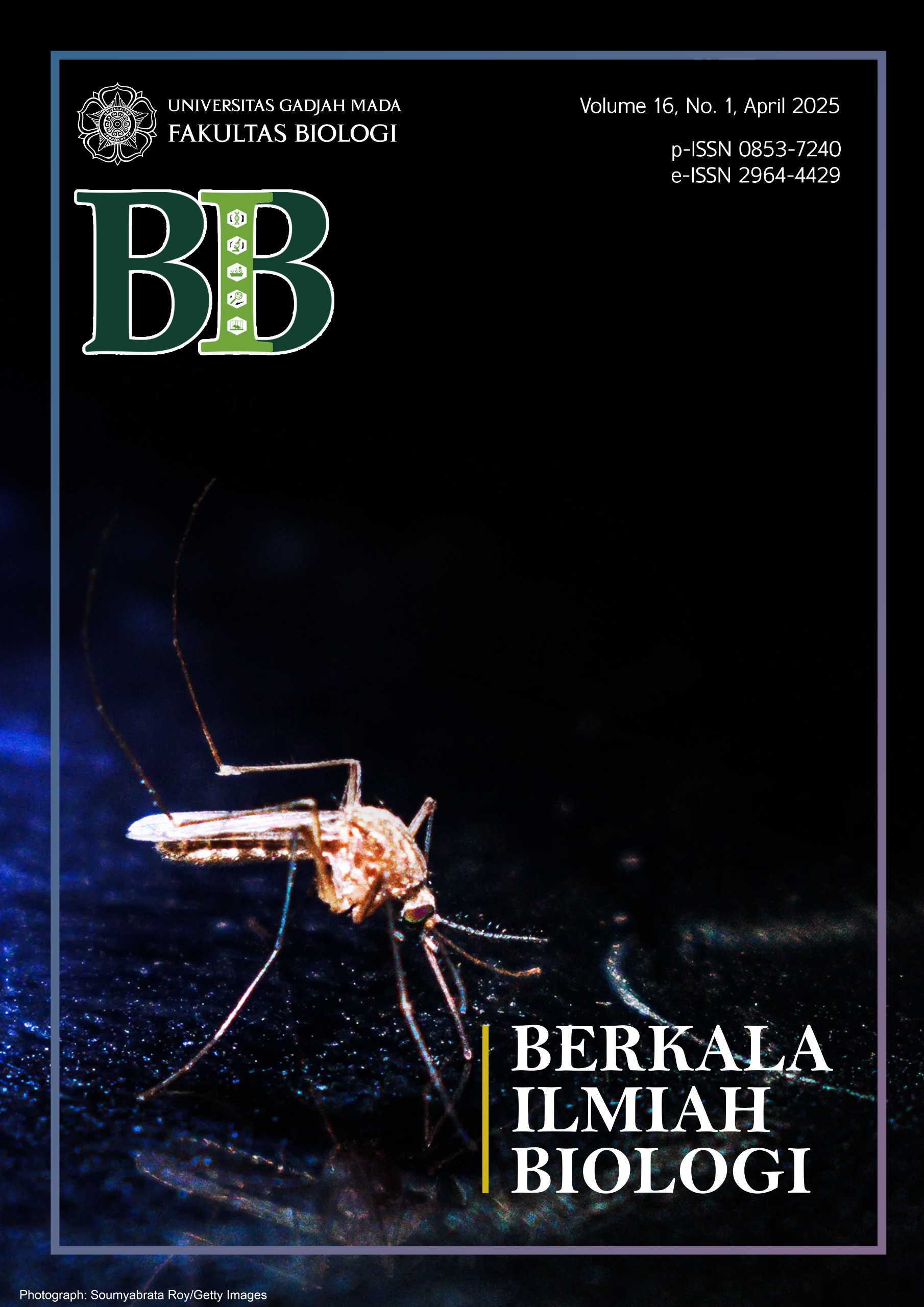Whitefly (Bemisia tabaci (Gennadius, 1889) ) Mortality on Chili Plants (Capsicum annuum L.) Affected by Cassava Leaf (Manihot esculenta Crantz.) Methanol Extract
Main Article Content
Abstract
Chili is a highly popular commodity plant among the public. However, domestic chili productivity often declines due to pest infestations. Whiteflies are one of the pests that can affect chili production yields. Cassava leaves serve as an alternative for producing natural insecticides to combat whitefly infestations. The objective of this study is to determine the phytochemical compounds present, evaluate the effectiveness of cassava leaf methanol extract, and identify the optimal concentration of cassava leaf methanol extract and observation time for the highest whitefly mortality rate on chili plants. This research is a factorial experimental study with two factors using a Completely Randomized Design (CRD). The first factor is the concentration of cassava leaf methanol extract (10%, 20%, 30%, and 40%), along with a negative control (distilled water) and a positive control (40% methomyl). The second factor is the observation time, which consists of 0.5 hours, 1 hour, 2 hours, and 24 hours after treatment. The obtained data were analyzed using SPSS, followed by a Tukey test. Phytochemical tests revealed that the methanol extract of cassava leaves contains flavonoids, saponins, tannins, and cyanide acid (HCN). Probit analysis results showed an LC50 value at a concentration of 32.61%. The Tukey test results indicated that cassava leaf methanol extract had the most significant effect on whitefly mortality at a 40% concentration with a treatment duration of 2 hours.


